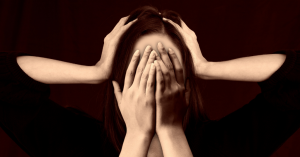Why do people have a hard time with conflict?
Mental health needs more attention.
How does conflict affect our mental health?
Everyone has conflicts at some point in life, some occur during the day, with our partners, children, co-workers, in traffic, shopping, and in our daily lives. We cannot escape it. Conflict is everywhere and in each case, the issues and longstanding conflict have an impact on us. Most people try to avoid conflict by being accommodating, trying to please and compromise all the time, or just ignore the problems until they explode or the problems have become an enormous entrenched battleground. None of these are good for you or your mental health
How we deal with conflict depends on our comfort level, conflict resolution skills, listening and communication styles, and awareness of our unconscious biases.

It’s important to understand that good communication skills are not often something we are exposed to during our childhood and adolescent years. Think about how you address conflicts in your life.
However, it’s never too late to learn effective communication that helps you deal with conflict/stress at home, with friends or in the workplace.
As humans we all make mistakes say the wrong thing, do the wrong thing and cause hurt feelings. It’s OK to make a mistake and we have to be accountable for that mistake.
It’s not OK to bully and abuse anyone at home, in the streets or at work. The difference between a bully and a mistake when you’re dealing with conflict is the intent. A bully wants to hurt, control, and have power over. Recently many of us have had to deal with increased stress levels because of the COVID pandemic. Trying to get along is challenging under this COVID cloud. The polarizing debates of masks or no masks, vaccine, or no vaccine!
For Example in our business, if we want to be successful, we need to get along in the workplace and that means everyone. For a business to thrive and prosper everyone needs to get along, to put aside any personal feelings, be aware of our unconscious biases and just get along. For some, this is difficult to let go of resentments, lingering hard feelings while dealing with conflict.
Conflict and communication are woven into the fabric that affects our mental health. In conflict resolution, there is no one-size-fits-all we must be willing to be creative, aware that everyone has their own life lessons and experiences that have created who they are today. We can learn from each other and it’s never too late to try something new in dealing with conflict and stress.
 From my experiences in the RCMP, if the boss was a bully then the message was clear this is a bullying workplace and victims are on their own. Of course, this is not helpful.
From my experiences in the RCMP, if the boss was a bully then the message was clear this is a bullying workplace and victims are on their own. Of course, this is not helpful.
Be a bully boss, or allow bullying in your workplace, ignoring conflicts and see what happens. Staff turnover, loss of productivity, sick days, accidents, decreased concentration of productivity, fear and stress damaged business reputation.
Dealing with conflict our words have so much power, it’s not what you say but how you say it.
Conflict and curiosity are part of effective communication in dealing with the misunderstandings of hard feelings of conflicts. Ignoring conflicts at home or in the workplace can create a huge divide in the relationships and a slow disintegration of trust which eventually affects our mental health.
It’s important to recognize conflicts. They happen every day to everyone. Someone cuts you off in traffic, the express checkout at the store one person has more than eight items or less, your partner forgets to get milk, your co-workers not talking to you, another co-worker ignores your request for help. Added to the stress is the ongoing pandemic. Overtime these conflicts can take a toll on us. Often we are unaware of the level of stress until we blow up in anger, frustration, or an emotional breakdown.
If we ignore the little things, and sometimes it’s best to do that and not sweat the small stuff, but if we let these little irritants that keep happening and they are bothering us, we need to speak up or it results in a more deeply embedded conflict. When we have offended somebody or being offended and we do not say anything then this underlying issue begins to fester and every time we are annoyed by this person that annoyance gets bigger, and bigger until you can’t stand the way the person breathes. This affects our mental health.
We need to have healthy communication which can be difficult conversations. Be willing, curious to ask questions, reframe, and ask more questions.

Dealing with conflict, difficult conversations like having three conversations. The idea is to avoid judgments and assumptions.
1- What happened, blame game his fault /her fault?
2- Manage feelings. We want to avoid hurting someone else or getting our feelings hurt.
3- Identity, and internal dialogue – conflicts where we feel our identity, sense of self-worth is challenged, are we good or bad people, our future and this can be scary.
Being curious and avoiding judgments is important in dealing with conflict.
And sometimes we can have it all wrong. Choose to be happy instead of right. But remember it’s important to speak up on issues that matter to you.
Mark Twain, “Kindness is the language the deaf can hear and the blind can see”
From the article BBC World News the UK Doctors are seeing a rise in cases reporting mental health problems.
There are also “particular concerns that the stark inequalities in accessing services and recovery rates that black and minority ethnic communities face will be exacerbated”, the report said.
Mental health providers report that as well as seeing patients with “more significant needs”, a higher proportion of their referrals are patients who are accessing services for the first time.
Meanwhile, providers predict infection control and social-distancing measures will mean they have an estimated 10-30% less capacity than normal.
Mr Duggan said he did not want to “medicalise everything… It’s perfectly normal to feel uneasy and anxious” at such an uncertain time.
But nevertheless, there was a “real” increase in people needing mental health services, he added.
Young people are facing an additional mental health crisis.
The study found suicidal thoughts increased from 8% to 10% and they were highest among young adults (18-29 years), rising from 12.5% to 14%.
The researchers say that, even though those are relatively small rises, they are significant because of the short period of time they happened over.
“The majority of people did not report any suicidal thoughts, but this creeping rise over a very short period of time is a concern,” says Prof Rory O’Connor, chair in health psychology at the University of Glasgow’s Institute of Health and Wellbeing.
“Levels of anxiety decreased during the same period of time, but that relates to the past,” he added. “Suicidal thoughts are about looking to the future.
“It suggests that the huge social and economic uncertainty associated with Covid-19 may be causing some people to feel hopeless. However, there is currently no evidence that the suicide rate is increasing.”
One in four respondents experienced at least moderate levels of depressive symptoms.
Young people, women, individuals from more socially-disadvantaged backgrounds and those with pre-existing mental health problems reported the worst mental health outcomes in the initial phase of the national lockdown.
HH Dalai Lama “If we have peace of mind, even negative experiences do not upset us.”
